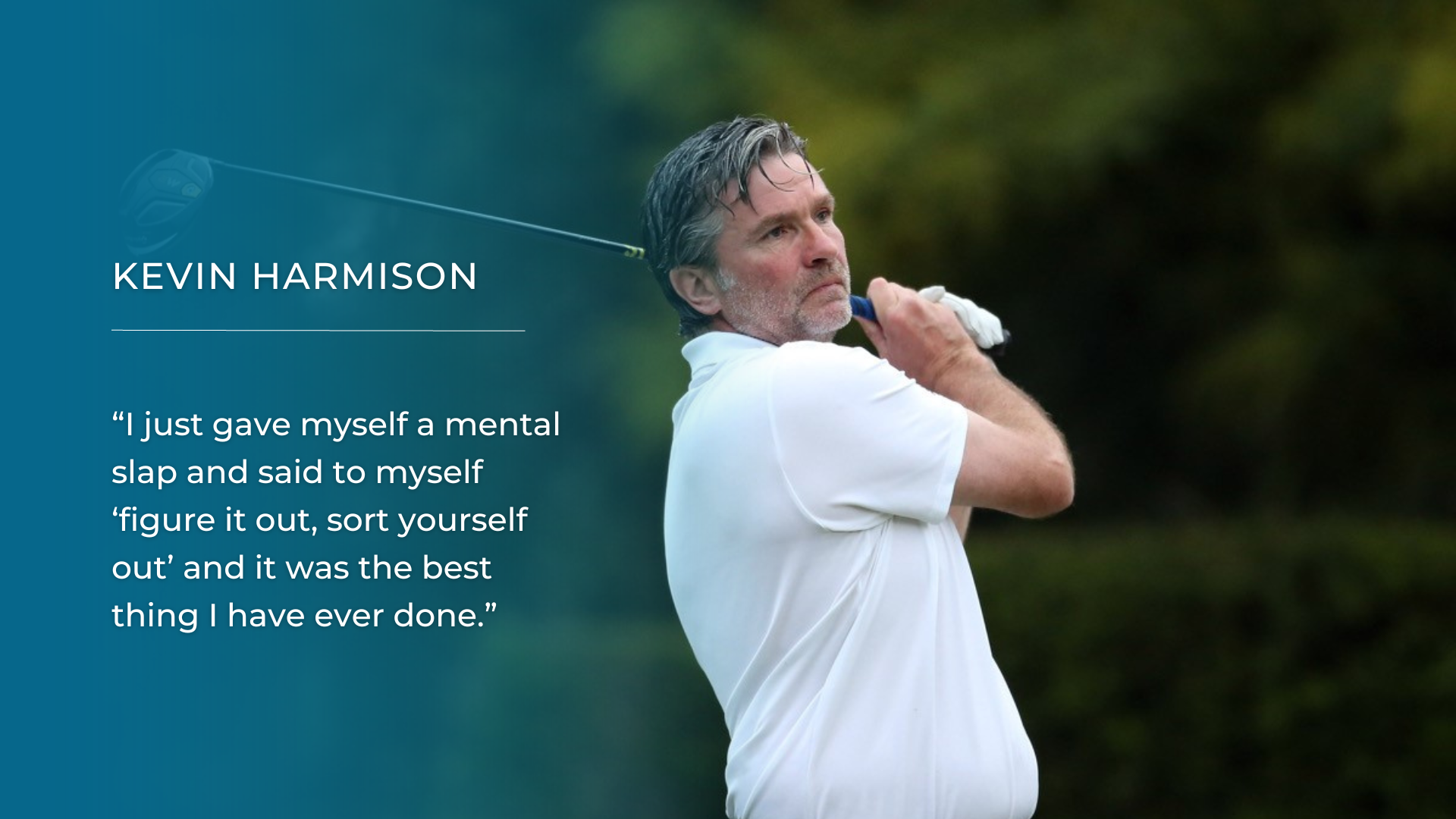Audio:
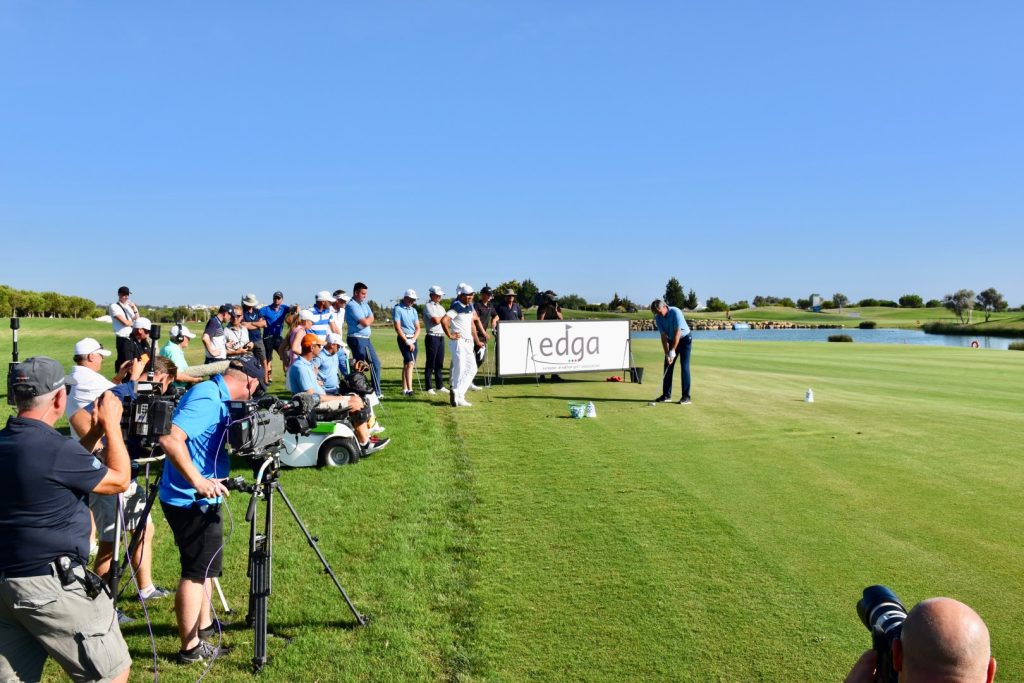
Ashington in the north-east of England is famous for being the centre of the coal mining industry, and the birthplace of three of Englands most famous footballers, Jackie Milburn, and the Charlton brothers, Jackie and Bobby. One of three boys in the Harmison family, it was natural for the boys to play the ‘beautiful game’ of football, and expected that when they became men that they would go down the pits. That is what his dad Walter had done along with his brothers Jim and Melvyn.
Walter had been a goalkeeper who had trials at Newcastle and a generation later Jim would have trials at Everton before playing professionally for lower league side Yeovil Town. Kevin also enjoyed his football and was a mad passionate Newcastle United fan, taking the weekly pilgrimage to St James Park when he was not playing local league soccer. “I didn’t want to go down the pits it was just something that everybody did, the wage was probably quite good at the time, but I was one of those who was more bothered about health, and so I did a college course,” says Kevin, “I started work on a government scheme when I was sixteen years of age and was on something like £16.50 per week.”
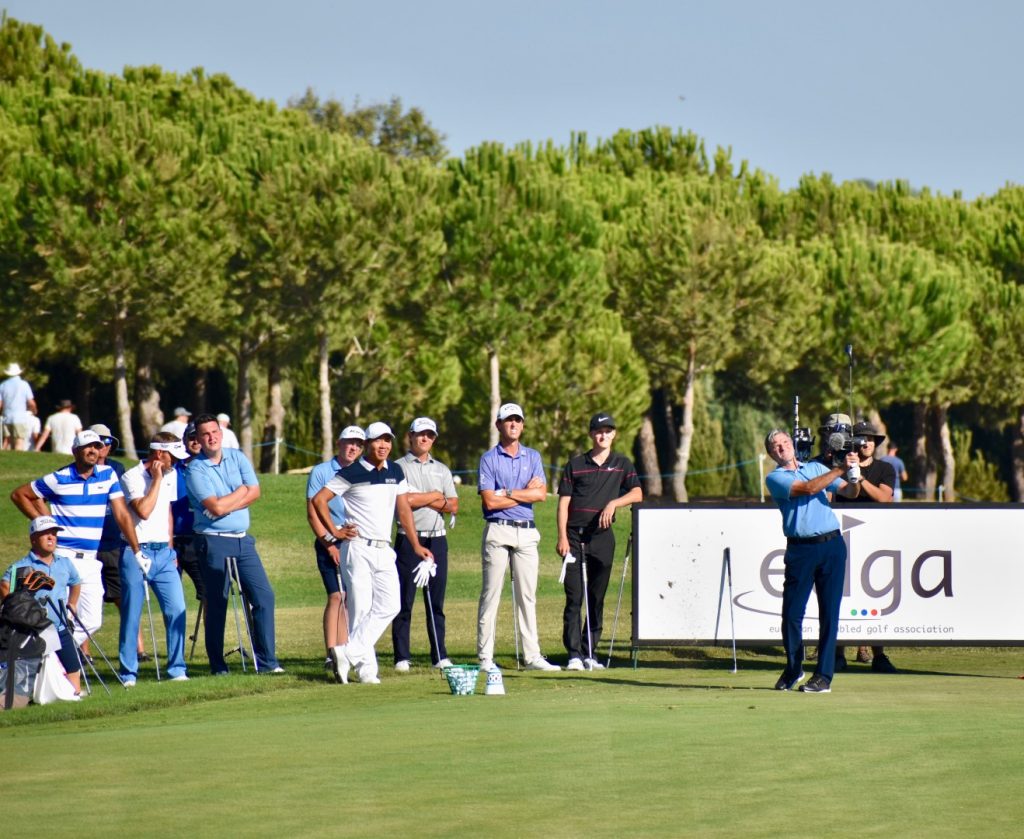
Golf came into Kevin’s life when he was just ten years of age when brother Jim got some clubs, and they would go off and have a few swings, “It was more like a relaxing sport, because when I played football it was intense. I think I was about 18 when I first joined a golf club. It was football in the winter and when I got more time off in the summer it was golf. By the time I was about 25 years old, my handicap was four.” Even though he thought it was a relaxing sport, he would get frustrated like every other golfer. Just when he thought that he had mastered the game it would kick him in the backside and he would have a ‘nightmare’ few weeks. Kevin says “It’s such a great game, the difference between football and golf is the fact that football is a team sport and so you can play badly and get away with it, whereas in golf it’s such an individual sport. I think that 90% of it is psychological and I think that this is where I got better.” That strength of mind would come in handy later on.
Life was moving along a well worn and predictable path for the 25-year-old Kevin. Married to Diane, a young family with daughters Meagan and Jessika, and a new job where he was doing well in his managerial role at the Hydraulic Cylinder Plant. “My golf got better… being the manager I got a lot of perks in the job. I met the chairman of the Chamber of Commerce and so I would get invited to play and so met some fantastic people. It was then that golf started to take over from football.” Things were good, and then a series of events changed the course of Kevin’s life.
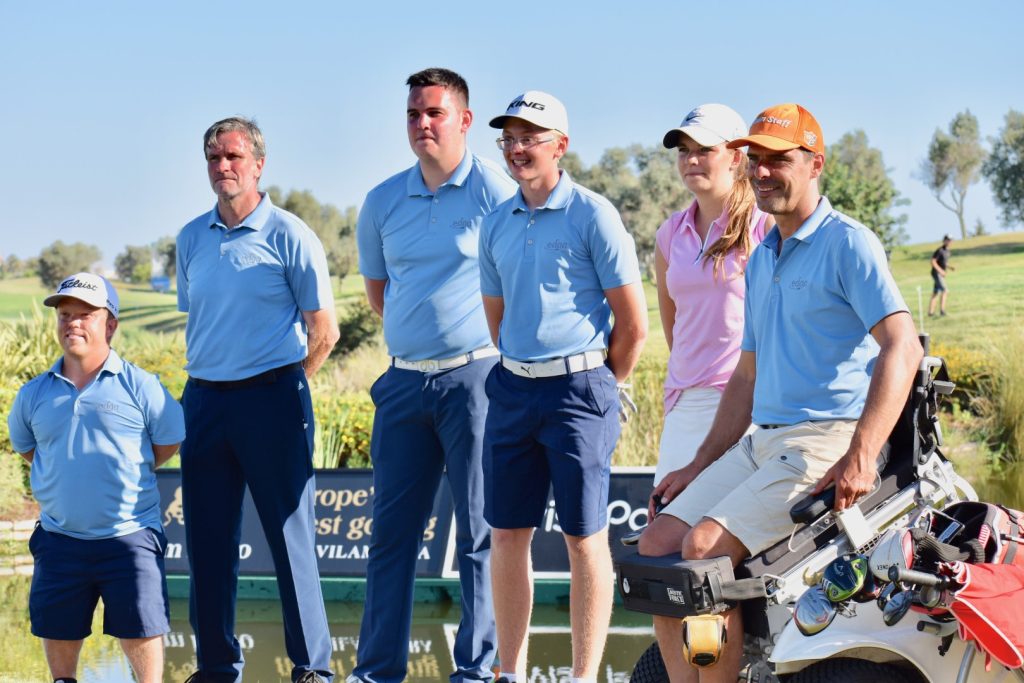
“I don’t know if it was fate really,” says Kevin, “There was a place called Alcan Primary Metal, which was right next to the golf course. They used to make aluminium, and it was the main place in the North-East if you didn’t want to work down the pit.” The job paid well and a lot of Kevin’s friends already worked there. “They were telling me that they could get me a job, I would just have to pass a test. But I didn’t really want to work there for the simple reason that it was a dangerous place.” Life went on until the factory at which Kevin worked burnt down, “We lost our jobs, and they had to rebuild the factory. We got paid our wages for about a year, but then I had to look for another job.” That job search ended when Kevin secured a job at Alcan. With a young family, the wage was a necessity even though he didn’t really want to work there.
Kevin started in training and had only been there for three or four months when a simple process went dramatically wrong, “I was doing this procedure one night, I was with my trainer when my foot slipped and went into one of the molten metal pots at a thousand degrees and my leg got badly burnt.” At one hundred degrees liquid will scald ones skin, now imagine ten times that heat and it is easy to realise that Kevin was in a bad way. “I had seven or eight operations,” says Kevin who eventually had his leg amputated, “It was fate really as it was one of those places that I didn’t really want to work.”
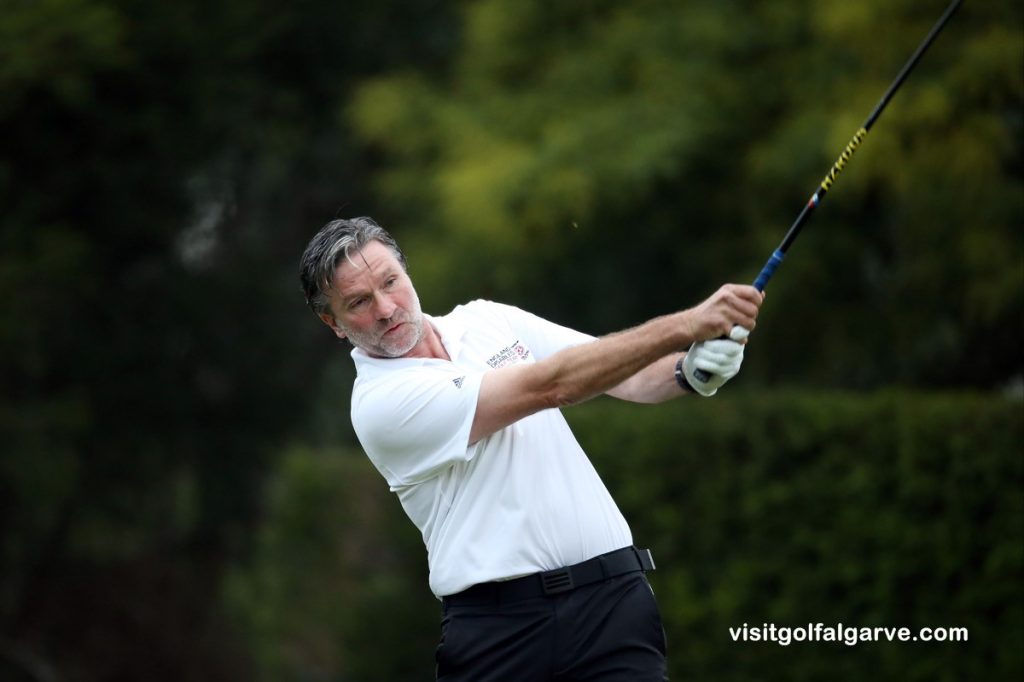
Kevin was admitted to the Royal Victoria Infirmary burns unit in Newcastle for eight weeks during which time they tried to save his leg five or six times, but the extent of the burns meant that treatment was not easy. “They tried to take [my leg] off further down…but they had to take it off higher because it was still burning inside. In the last operation, they gave me a chance to take a muscle out of my back and to put it into my leg, which wasn’t really an option. On the 52nd day, I decided to take it off, and that was it, a change of life really. Originally when I was going to have my leg taken off my world fell apart for a couple of days, because I thought what am I going to do?
In the weeks or months when an accident victim is hospitalised, there is a flurry of activity with doctors, therapists and nurses taking care of any, and all, medical needs. Visiting family, relatives and friends ensure that their loved one never feels forgotten, providing positive reinforcement that they will be fine and that life will move on. These are difficult days for all concerned, but all too often it is once the patient returns home that the real magnitude of what has happened hits. Kevin explains, “People forget about you, once you are out of the hospital. They come and visit you in the hospital and tell you that you’ve got to be strong and that you’re going to be sorted out but once you get out of hospital I think that people consciously think that he is going to be alright now because he is out of hospital.”
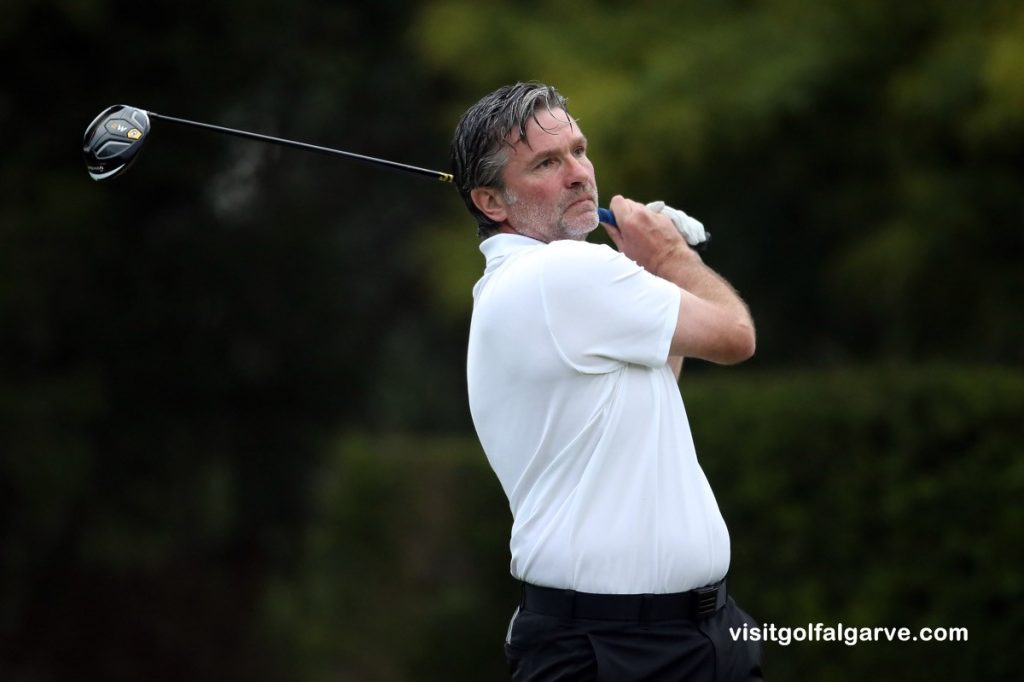
Kevin recalls that in the first few months he had focused on his wife and daughters and recognises that it was at around six months that things got really tough, “That was the worst time in my life because of the severity of the burns to my leg I couldn’t wear a limb for two years. So that next eighteen months was the hardest part because I was at home in a wheelchair, my wife was at work, my kids were at school, and probably for six or seven hours per day, I was in the house on my own. I had suicidal thoughts in my head, I just didn’t want to be here. I started to think I am not going to be any good to anybody, I don’t want my wife to be looking after me and things like that. So that next 18 months was really bad.”
There are no truer words written than, ‘in life, nothing stays the same.’ For Kevin, there was some hope as he got closer to getting a prosthesis, “As soon as I got a limb that I could put on and start walking, I could see a little bit of light and thought I’ve got a chance here. To be honest, I still wasn’t thinking about disabled golf then, I was just trying to get on my feet but once I got my limb, everything changed.” Immediately he started to think about going out of the house, taking up sport again. There were a few options disabled football with walking sticks and luckily he saw a poster that read “disabled golf.” This was another life-changing moment as Kevin once again took up the game that he had played before his accident.
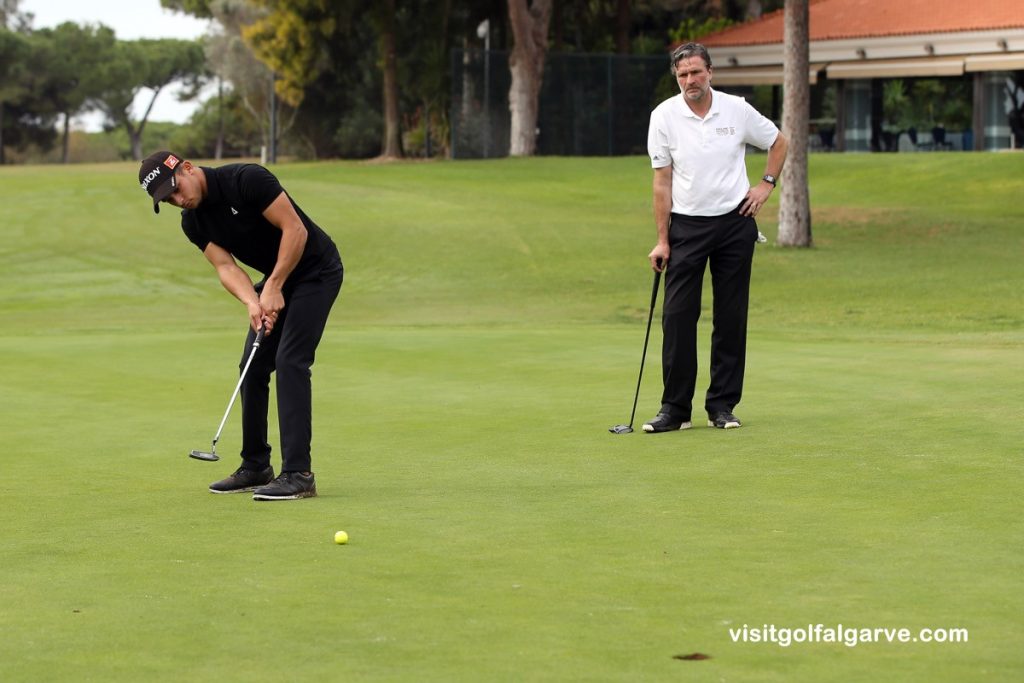
“I had my accident in 2004 and didn’t play my first tournament for four and half years,” but that didn’t matter because Kevin was getting fresh air, exercise and the social interaction that he craved. “I played my first event in Valencia in Spain in 2008 with a handicap of eight. I came third in the gross tournament, and it was fantastic because you meet people. What it taught me is that I thought my world had ended when I lost my leg, then I put my limb on and went to the tournament and thought what’s the matter with me there is nothing wrong with me. I was looking around and saw people who play golf, and I thought wow. So I thought ‘give yourself a shake and just get on with it’, that was the best part, meeting people like that. I met some fantastic people, the ability that some people have got is just scary.”
Over the last ten years, Kevin has become one of the names that people look to be on the podium at every tournament in which he plays. With a handicap of one Kevin is firmly up there with some of the best that Europe has to offer, but he realises how good he has to be, “I’ve learned how good some people are, I learned how good you need to be to get to the top. I’ve learned that England has some fantastic golfers and with a little bit more help we can be up there with the best teams in Europe.” One experience has helped focus Kevin’s mind, “In 2013 I played with Juan Postigo his Dad was with him, and he was only 16 at the time, and he was a lovely lad. At the end of the game, his Dad came up to me and said, you see that lad there [Juan] in five years he will be the best in the world.” Time will tell whether or not Juan makes it to the top of the Ranking, but with several weeks in second place and two EGA European Championships medals to his name, it seems there is a good chance.
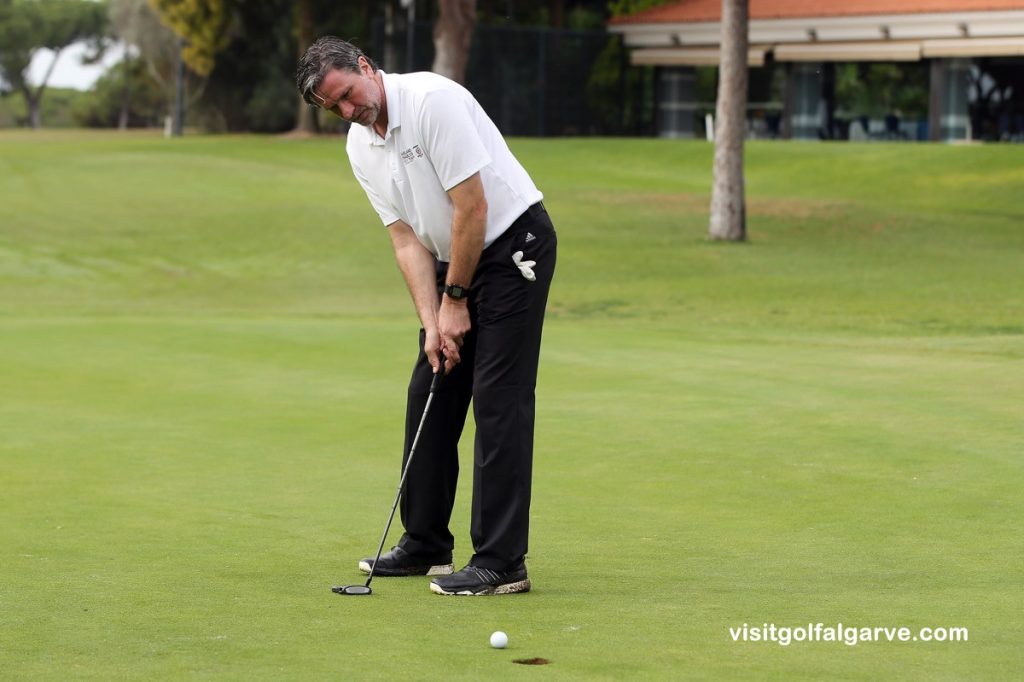
As we sat together at the Portugal Masters where Kevin together with five of his fellow golfers with a disability had conducted a demonstration and competed with the professionals. He reflected that he would like to see a little more funding of English players so that they compete in six or seven tournaments per year to have the chance to climb the newly announced World Rankings. “I think that disabled golf is now taking off, and think that what we have done this weekend is show professional golfers how good we can be.”
When asked about what advice he would offer to someone who has a similar disability to himself he says, “Be strong. You’ve got to be strong that’s what it’s all about, because you will always have negative thoughts in your head, and you can’t afford to, because as soon as you get negative thoughts, you are away down that slippery slope. It’s all about being positive, because [an accident] changes your life, but it can actually make your life better. It’s made my life better, I’ve actually got a better life now than what I had before my accident. I got compensation and a pension, things like that, so my lifestyle now is geared toward doing things differently, but what happened to me is that it made me mentally stronger. I would encourage people to come and watch us play golf because it will actually make them want to do the same thing.”
Hear! Hear!
Contact EDGA
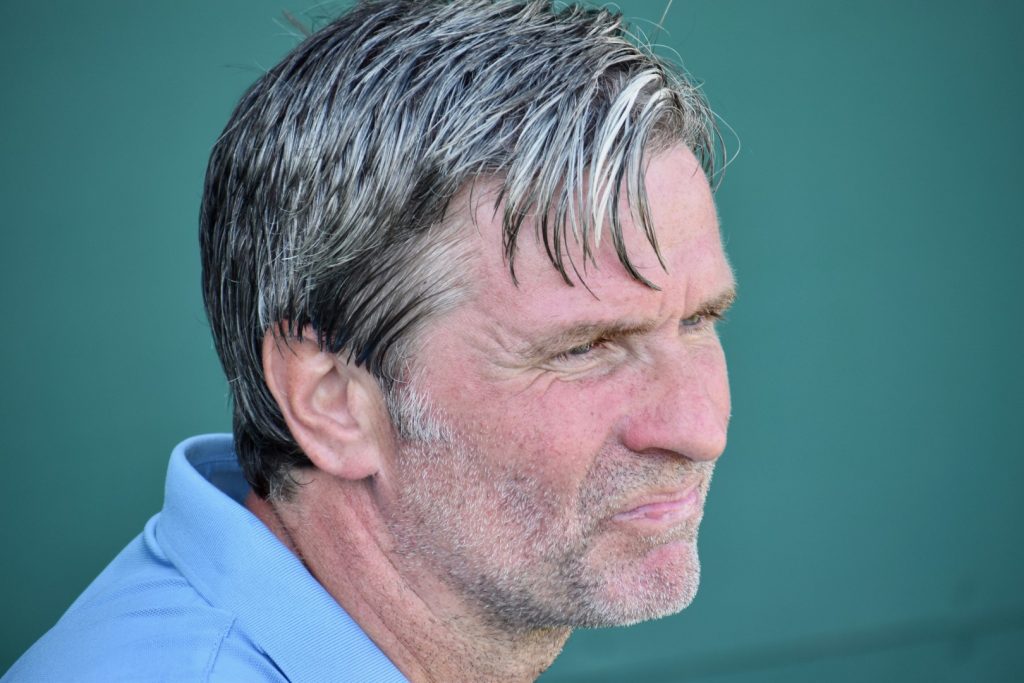
NB: When using any EDGA media, please comply with our copyright conditions


